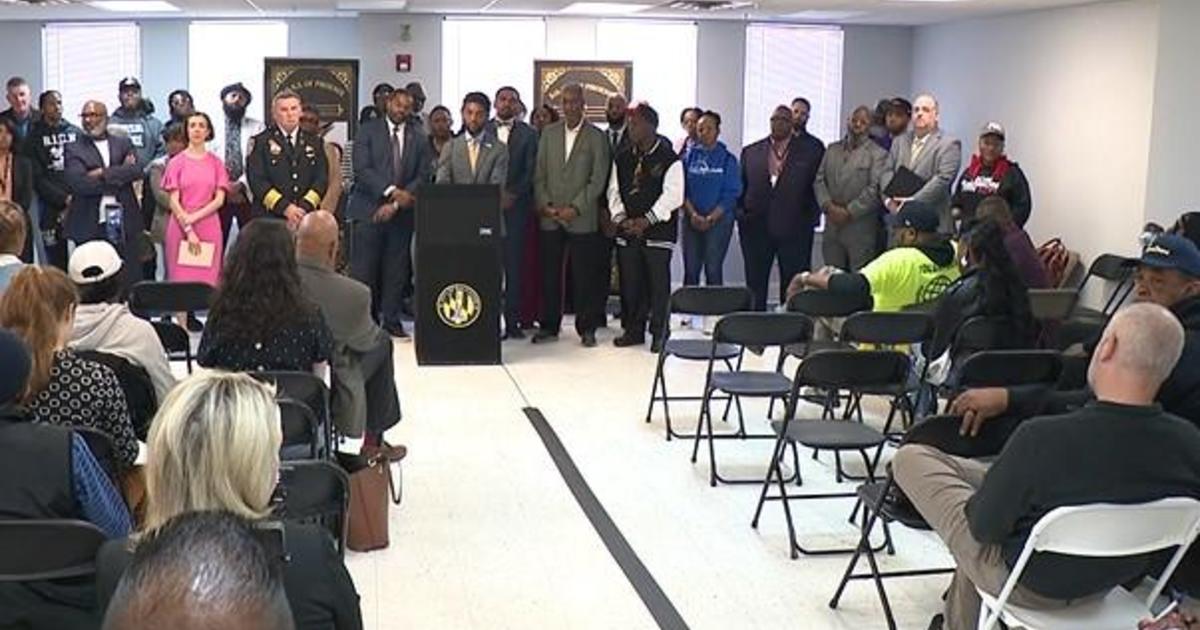Md. Plan To Deter Foreclosures Works For Some
LANHAM, Md. (AP) -- Louise Golden, 79, recently stood at the front door of her tidy brick split-level in Lanham, still shocked to hear the terms of the refinancing agreement she and her now-deceased husband, Stanley, signed in 2006.
"I thought it was a fixed-rate mortgage," said Golden. "I didn't know what a five-year ARM was."
"You didn't have a five-year adjustable rate mortgage," said her attorney, Gretchen C. Reimert. "It adjusted after 30 days."
The interest rate jumped from 2 percent to 7.7 percent in one month — and kept climbing.
Golden nearly lost her home after her husband died. But Golden and Reimert were able to prevent foreclosure through a mediation program started a year ago in Maryland. After a face-to-face meeting with her lender, Golden signed a loan modification in March, returning her interest rate to 2 percent.
"Until then, I was just about insane," Golden said. "I don't know what I would have done if I'd lost this."
But not everyone has been as fortunate.
From last July, when the program began, through the end of May, Golden was one of only 100 homeowners who received a loan modification. Of the 829 mediation cases classified as closed, slightly more than 150 have contingent agreements that allow homeowners to stay in their houses until a final resolution is made. About 120 cases have resulted in defaults because the homeowners did not show up for their scheduled hearings, and 50 homeowners were ruled ineligible for the program because of bankruptcy or for other reasons, state records show.
Reimert said one of her clients went to mediation in December, and she's as uncertain about her future today as she was last year.
"She gave all the necessary financial documents, and six months later she's waiting to hear back," said Reimert, who heads the Foreclosure Legal Assistance Project for the Maryland Legal Aid Bureau.
Reimert acknowledged that the process is better than it was before the state created the opt-in mediation program, which allows homeowners to request a face-to-face meeting with mortgage company representatives before an administrative law judge.
In 2009, Gov. Martin O'Malley assembled a group of his legislative staff, housing counselors, lawyers, bankers and mortgage servicers to find a creative way to help troubled homeowners.
O'Malley had already pushed other aggressive foreclosure prevention measures that toughened oversight of the mortgage-lending industry, prohibited prepayment penalties and extended the time before a home goes into foreclosure. But with foreclosures still soaring, O'Malley wanted another tool to help keep homeowners in their houses.
The task force came up with the mediation program, now a year old. The District started a mediation program in May, and Virginia officials are working on foreclosure prevention measures.
"It's a program that is still new, but it also can use some improving," Reimert said.
She and other attorneys are hoping that state lawmakers revisit the legislation to make it more beneficial to homeowners. The state, meanwhile, is holding workshops to let homeowners know about the program. The foreclosure mediation program is also mentioned in promotional mailings, and homeowners who call a state housing hotline are told about it.
Manuel Ochoa, the regional director of homeownership at the Wheaton-based Latino Economic Development Corp., said he was excited about the program last year but that it has not lived up to his expectations.
Ochoa said his agency offers housing counseling to about 250 people each year. Only two clients have gone through mediation and neither has had a successful outcome, he said.
One homeowner is still talking with the bank and the other can't afford the modification that the lender offered, Ochoa said.
"The idea is a good one," Ochoa said. "But for my clientele, they are not benefiting."
The program got off to a slow start.
State officials had expected about 5,000 claims to be filed annually. Instead, less than 1,000 have been considered.
"We just haven't had the volume that we'd hoped," said Phillip Robinson, executive director of Civil Justice Inc., a Maryland-based public interest legal association that provides services to residents across the state.
Attorneys, state officials and mediators said lenders are part of the reason. Banks are filing fewer foreclosures, they said.
Last year, banks began withdrawing foreclosure filings after questions were raised about faulty or fraudulent paperwork in mortgage foreclosures. In the first quarter of 2011, Maryland had 4,777 foreclosure events — a homeowner received a default notice, had a home put up for auction or had the bank take possession of the property. That is the lowest number of quarterly filings since the third quarter of 2007, according to the state.
Judge Thomas E. Dewberry, chief administrative law judge of the Maryland Office of Administrative Hearings, said he hopes that people are not apprehensive about coming to a mediation.
"Maybe some people feel they are so far behind and feel like a mediation won't help, but that's not true," he said. "Even if you can't save your home, there are some (affordable rental options) that can be worked out."
Ochoa also thinks a reason people who need help have not taken advantage of the program is that the information about mediation is "buried" in the foreclosure notices. The law requires lenders to file an affidavit in foreclosure notices that details the options available to homeowners.
Even if homeowners know mediation is an option, they may not realize that there are deadlines involved, Ochoa said.
Another problem, he said, is that none of the information is in Spanish. "That's one of the things that we've asked the state to do," Ochoa said.
Mary Hunter, a lawyer with the nonprofit Housing Initiative Partnership, which does housing counseling in Prince George's and Montgomery counties, said homeowners who go to mediation with the proper documents appear to have successful outcomes.
Robinson agreed, saying some homeowners have walked out within 20 minutes with the loan modifications they sought.
But, Hunter said, about 60 percent of the clients working with her agency's housing counselors remain in limbo while they submit the same paperwork over and over again.
"It's incredible because in some ways nothing has really changed," she said.
But Raymond A. Skinner, the Maryland secretary of Housing and Community Development, said the program has worked for those who use it.
"We view this as another weapon in the fight against foreclosure," he said. "We didn't think it would be the end-all and be-all, but we were seeing too many people going to foreclosure who could have been eligible for modification or other relief if they had taken the time."
Golden said she doesn't know what she would have done without the mediation.
"I just thank you for the work you did," she said to Reimert recently as they sat in her back yard filled with azaleas, geraniums and hostas. "I thank you guys for helping me keep this."
Maryland homeowners who need assistance can visit mdhope.org or call 1-877-462-7555.
Information from: The Washington Post, http://www.washingtonpost.com
(Copyright 2011 by The Associated Press. All Rights Reserved.)



